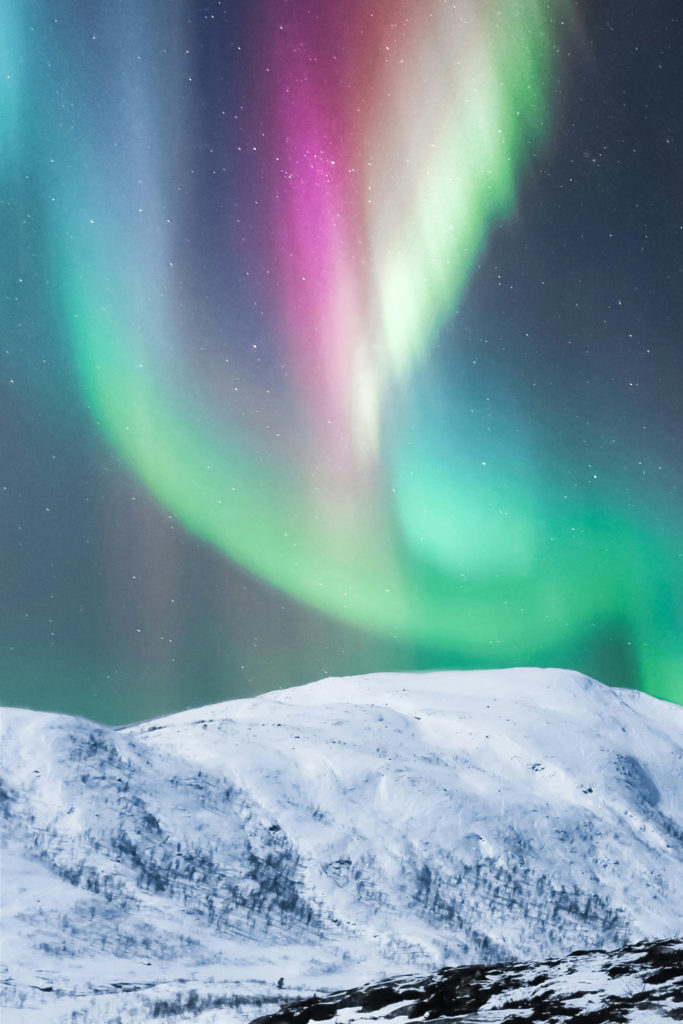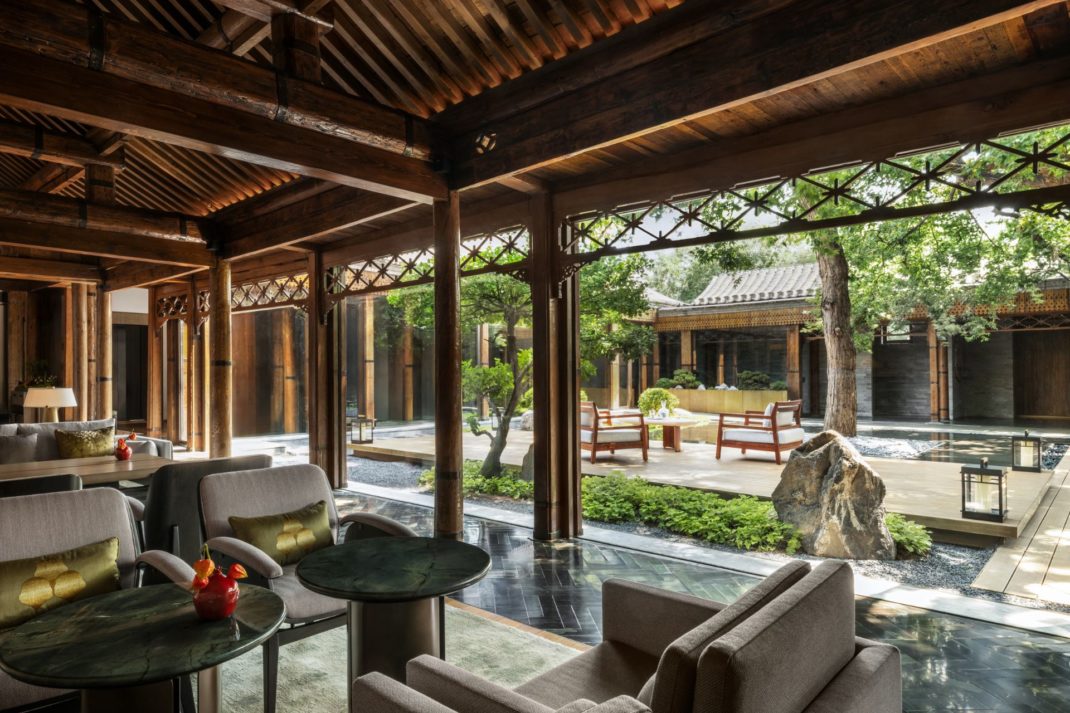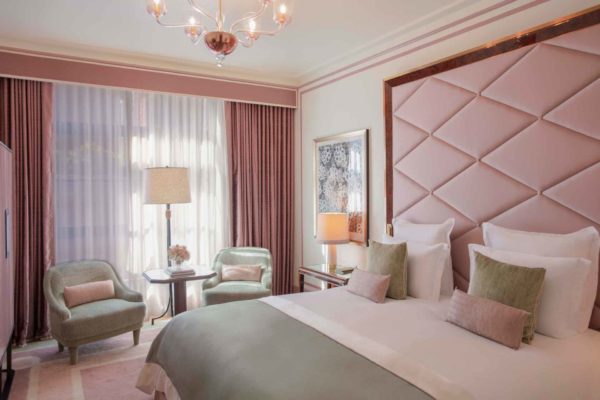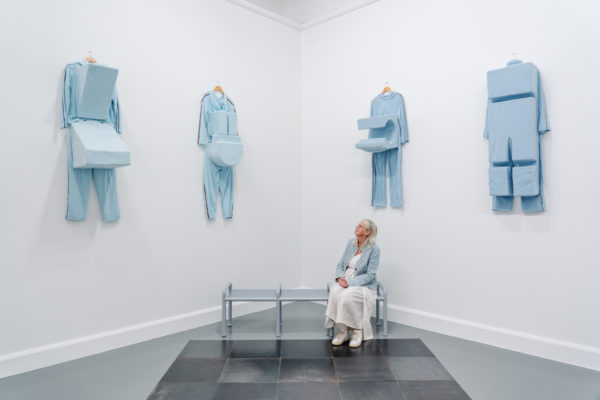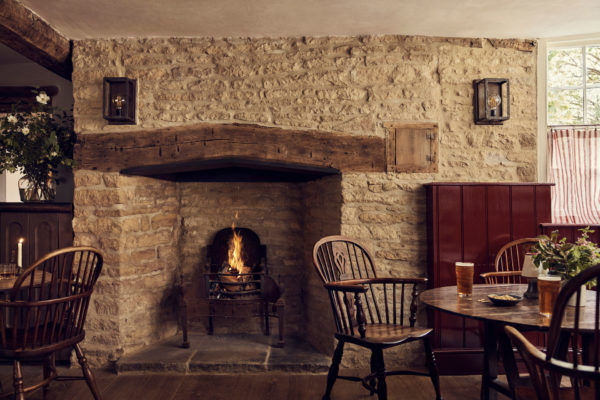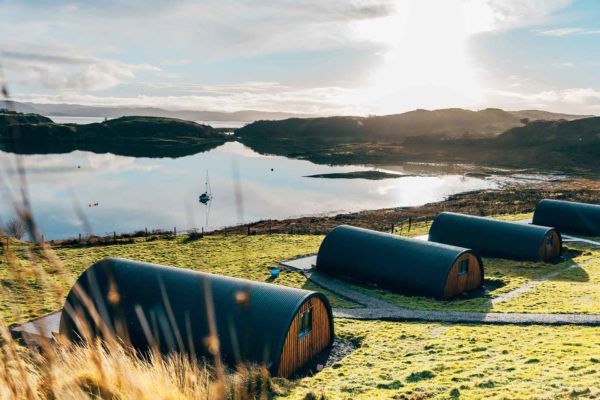Discovering The Spice Islands By Boat
By
1 year ago
Abigail Butcher delves into Indonesia's Maluku Islands
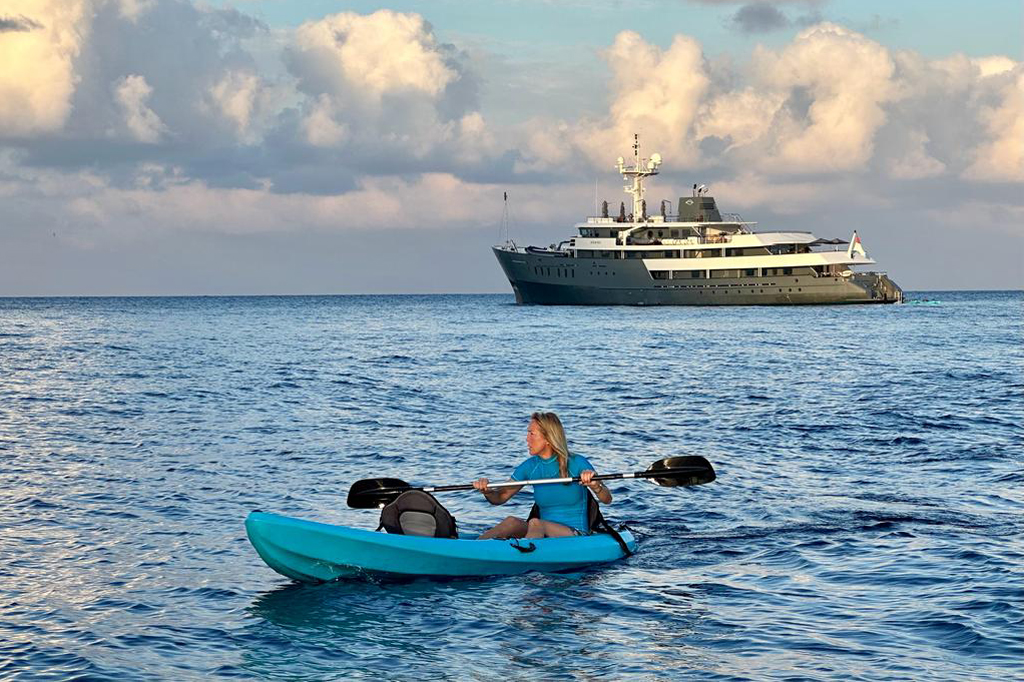
Abi Butcher hops aboard Aqua Blu’s Spice Islands expedition, finding life and acceptance in the diverse waters.
Read the C&TH Guide to Responsible Tourism
Finding Life & Acceptance In The Spice Islands
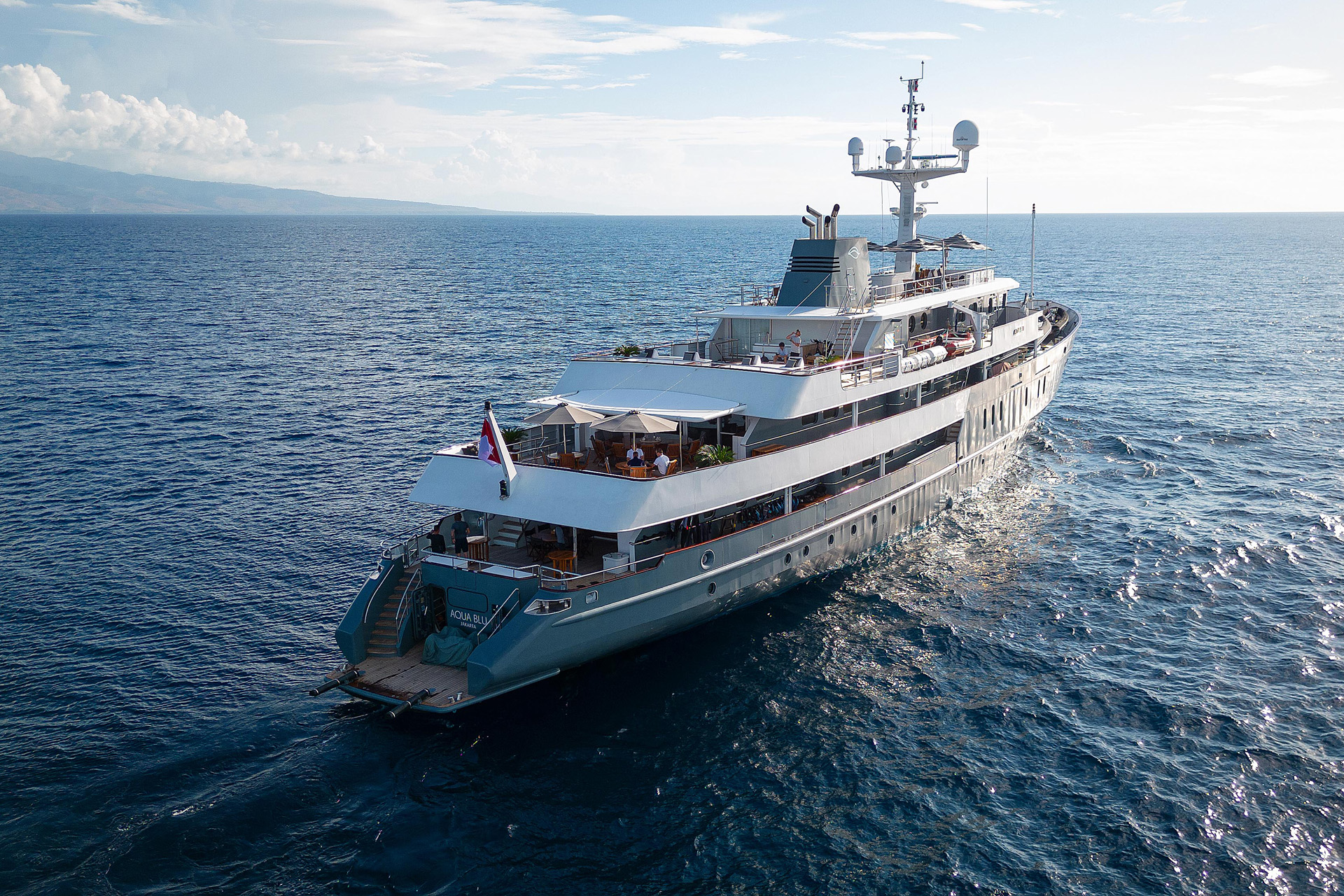
As I watched the tiny, vivid orange, hairy little orangutan crab cartwheel in front of me, I finally started to feel joy seep into my being. As he danced and swayed in the gentle current, before returning softly to his cushion of bubble coral, the clear, warm water negating the effects of gravity, I felt a surge of happiness course through me for the first time in months.
I signalled ‘all ok’ vigorously at my dive guide, Kazz, in an effort to convey my feelings at his finding this tiny creature — no larger than a 10 pence piece — but that’s what he does…
We were swimming through clouds of fish: clown, parrot, trigger, surgeon, butterfly fish of every variety, all going about their busy lives around the vibrant, healthy coral reefs – unlike any I’d seen on previous dives.
Just before meeting our little orangutan crab (whose hair, I later learned, was actually algae), we watched a hawksbill turtle crunching on some coral, and an octopus blinking at us from the depths of her cave. My delight and surprise at these underwater treasures and sheer abundance of marine life is pure and childlike.
I’m in the Banda Sea, part of the western South Pacific surrounding Indonesia’s Maluka islands, diving daily from Aqua Blu, a 15-cabin former Naval explorer, now part of Aqua Expedition’s fleet of small, state-of-the-art luxury cruise ships exploring remote areas of the world.
The East Indonesian archipelago is a ‘transition zone’ between Asia and Oceania, rich in unique fauna and flora thanks to its location on the ‘Ring of Fire’, a 40,000km tectonic belt circumscribing the Pacific Ocean. Regular eruptions feed the diversity of coral, fish and sea creatures under water and provide fertile soils overland for spices. At one time, these islands were the most famous in the world: the sole source of cloves and nutmeg, more valuable than gold in weight, and sadly playing a key role in this region’s tumultuous and barbaric history.
Now all is calm, and beneath the hot equatorial sun, it’s a world away from everyday life. I’ve always leaned towards travel as a re-set for emotions and mind, and this trip was proving no exception. My father died a few months before this trip, after a short, sharp and devastating illness. I spent the year suffocating beneath a blanket of grief, wading through his affairs. But that tiny crab helped me shed a layer, as did the lightness and curiosity of my fellow guests — 15 of us, aged seven to 70, drawn together from all over the world by a shared passion for discovery.
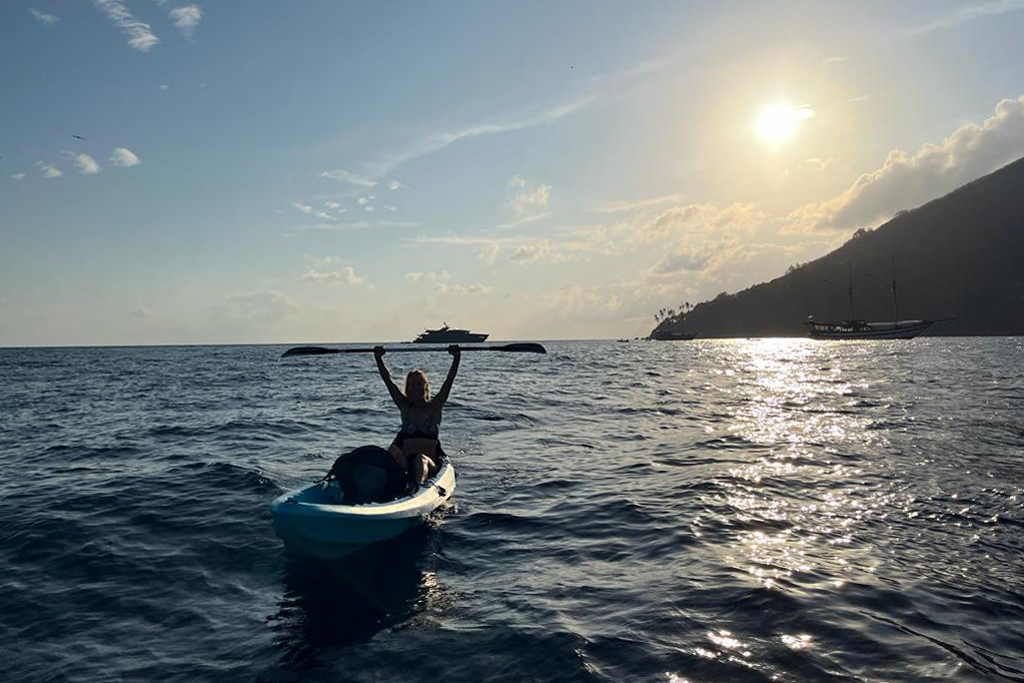
Landing in the Indonesia capital, Jakarta, was cathartic in itself. I’ve learnt to give myself breathing space when I travel; time alone adjusting to a new time zone and horizon. From my base at The Langham, I spent two days exploring with wide open eyes; the colonial-style buildings of the old town, vibrant markets and upmarket shopping malls.
I boarded the onwards flight to Ambon, acclimatised to both the intense humidity and jet lag, absorbing the change in culture and, for the first time in months, looking forwards rather than back.
Aqua Blu is magnificent, and it’s impossible to board the pristine teak decks and greet her 30 navy-and-white clad staff without feeling a heady mixture of excitement and privilege. The sleek, 60 metre motor-yacht also sails Raja Ampat and the Komodo Islands, both renowned paradises, but I was far more interested in exploring the lesser-known, hopeful that total immersion in nature and culture would help my acceptance of loss and, even just temporarily, shed the shackles of grief.
We (three certified guest divers and Kazz) emerge from the clear waters alive with excitement, speeding back to Aqua Blu by RIB to swap stories with the rest of the group, who’d been snorkelling.
‘Did you see a turtle?’ on the first day speedily morphed into ‘How many turtles did you see?’ as the week wore on, along with raucous post-dinner charades as the group bonded closely, allowing me to not forget my sadness, but put it to one side. But dad was always there. Since childhood, fish have held a special fascination for me, and my dad would take me to the local pet shop at weekends to browse the aquariums, transfixed by the vibrant colours of angel fish.
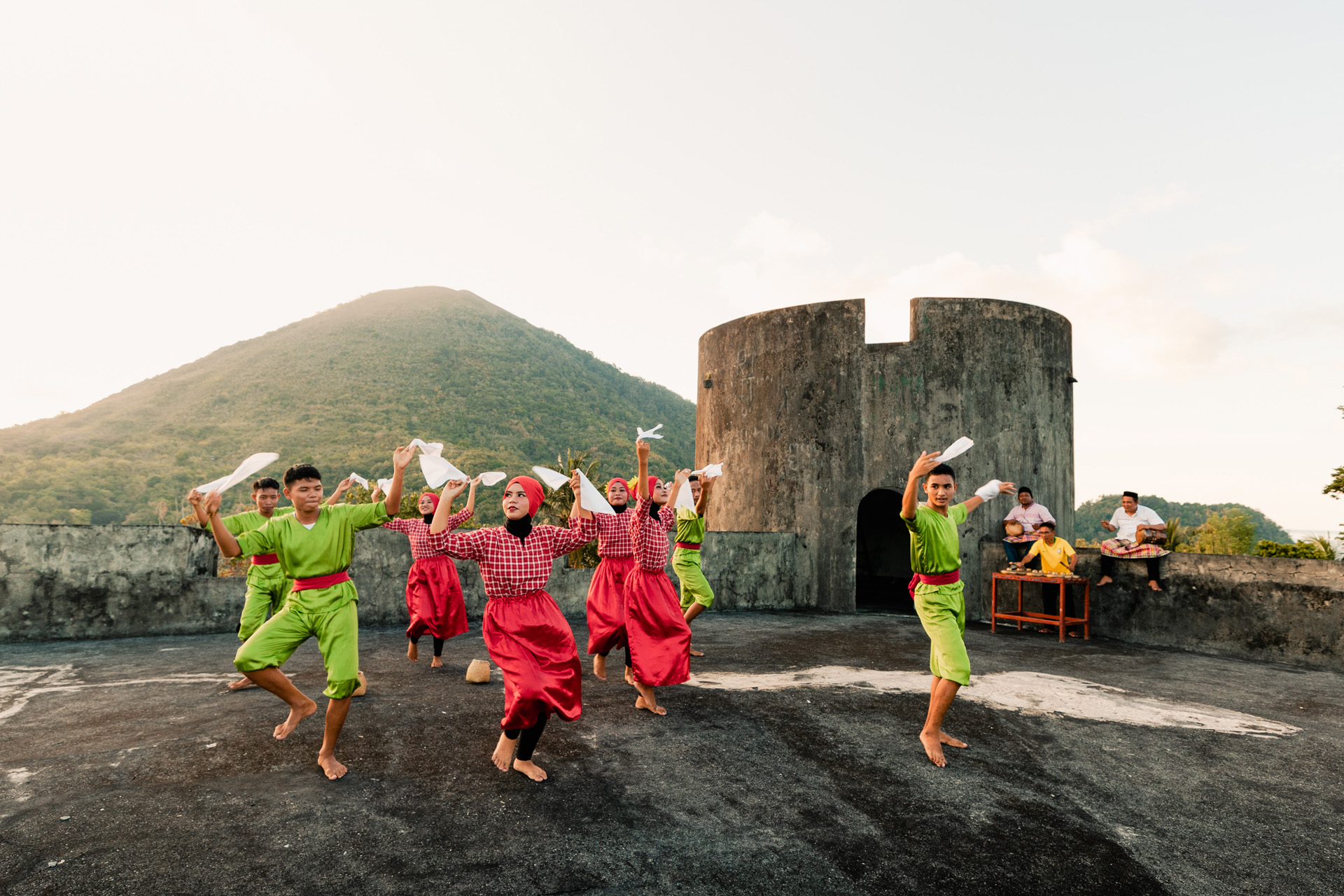
Fort Belgica
Above water, the experiences come thick and fast, too. We tour the UNESCO-nominated Fort Amsterdam in Hila, built in the 1500s by the Portuguese and taken over when the Dutch muscled in, and watch the a group of strong men struggle to control a piece of bamboo bewitched by a local shaman. It’s a mystical ritual called Bambu Gila, performed only in these islands — and I couldn’t resist having a go when offered, too.
We weighed anchor and sailed overnight to Banda Neira, where two Kora-Kora (traditional Maluku canoes) paddled out to greet us; their drumming and cries so evocative of times passed that tears stung my eyes. Not only for my dad, but that we were now so welcomed – a stark contrast to the Europeans of the 1500s and 1600s who wreaked havoc here, massacring most of the local population in the name of spice.
I peddled alone around the streets, curiously aware of how bright the sights and sounds of this place seemed – I’ve noticed colour so vividly since dad died – and later dived a coral reef formed by lava flow from the volcano just 35 years ago. That regeneration, and the intensity of our welcome, was a display of human resilience and the circle of life for every living being.
My appetite for discovery grew as the Aqua team guided and nurtured guests through the journey, serving up sunset cocktails on remote islands, floating bars or Aqua Blu’s top deck; revelling in our delight, joining in our happiness. After touring a nutmeg plantation on Pulau Ai, we dived Nailaka Wall – again, the only divers in sight, and almost instantly spied a pair of eagle-spotted rays (a species near threatened and usually seen alone), hammerhead sharks, turtles, glass shrimp, octopus, tiny lobsters, and huge moray eels poking eerily from dark holes.
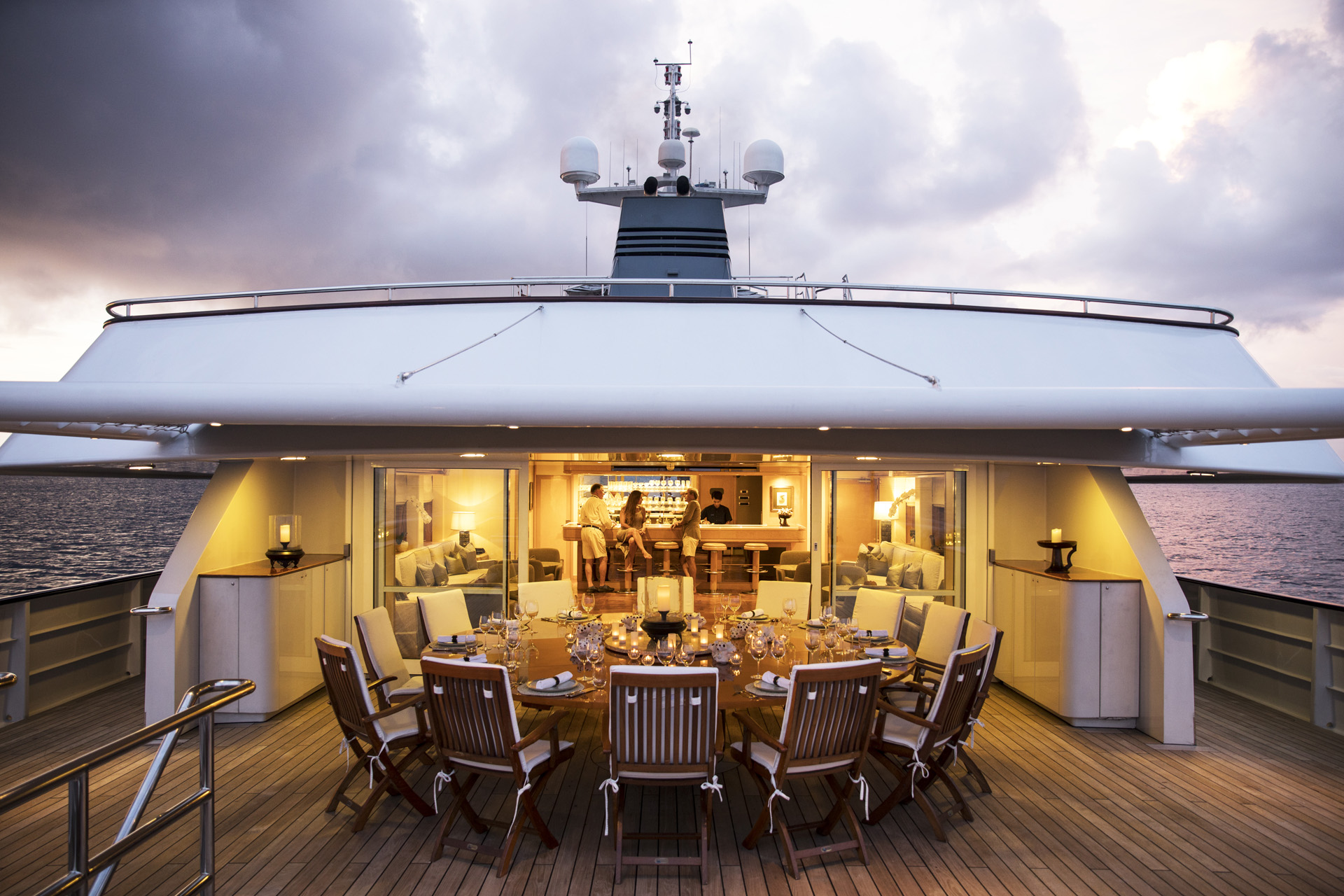
I took a kayak at sunrise and paddled alone to the shores of the uninhabited Manuk Island, cursing myself for forgetting binoculars with which to properly study the mass of sea birds chattering on the cliffs. Hours later, after a spectacular breakfast — fine dining is a key feature for Aqua Expeditions — we donned tanks, fins and masks, and dived back into the sea.
By this time, I was fully present, my mind sharp and focussed as I grew in confidence, with my Covid-dusty scuba skills under Kazz and Wayan’s careful guiding. Just a few metres down, we found a tangle of sea snakes, curiously winding their way around us, totally unperturbed by the presence of clumsy divers in the subaquatic kingdom. These waters and their abundant snakes are featured in Attenborough’s Blue Planet, and I felt great privilege once again to be among the first to see these extraordinary creatures.
As we made our way back to Ambon and bid tearful, heartfelt farewells to Jakarta, I knew I’d shed a layer. Was it the sea snakes? My new friends? The sunshine? The history? I don’t know, but Aqua Blu had helped me edge my way closer to acceptance of life and all it brings. Now I want to explore more than ever before, so my dad can live on. Aqua Expeditions will launch a trip to Papua in 2025, and I’ll be the first in line.
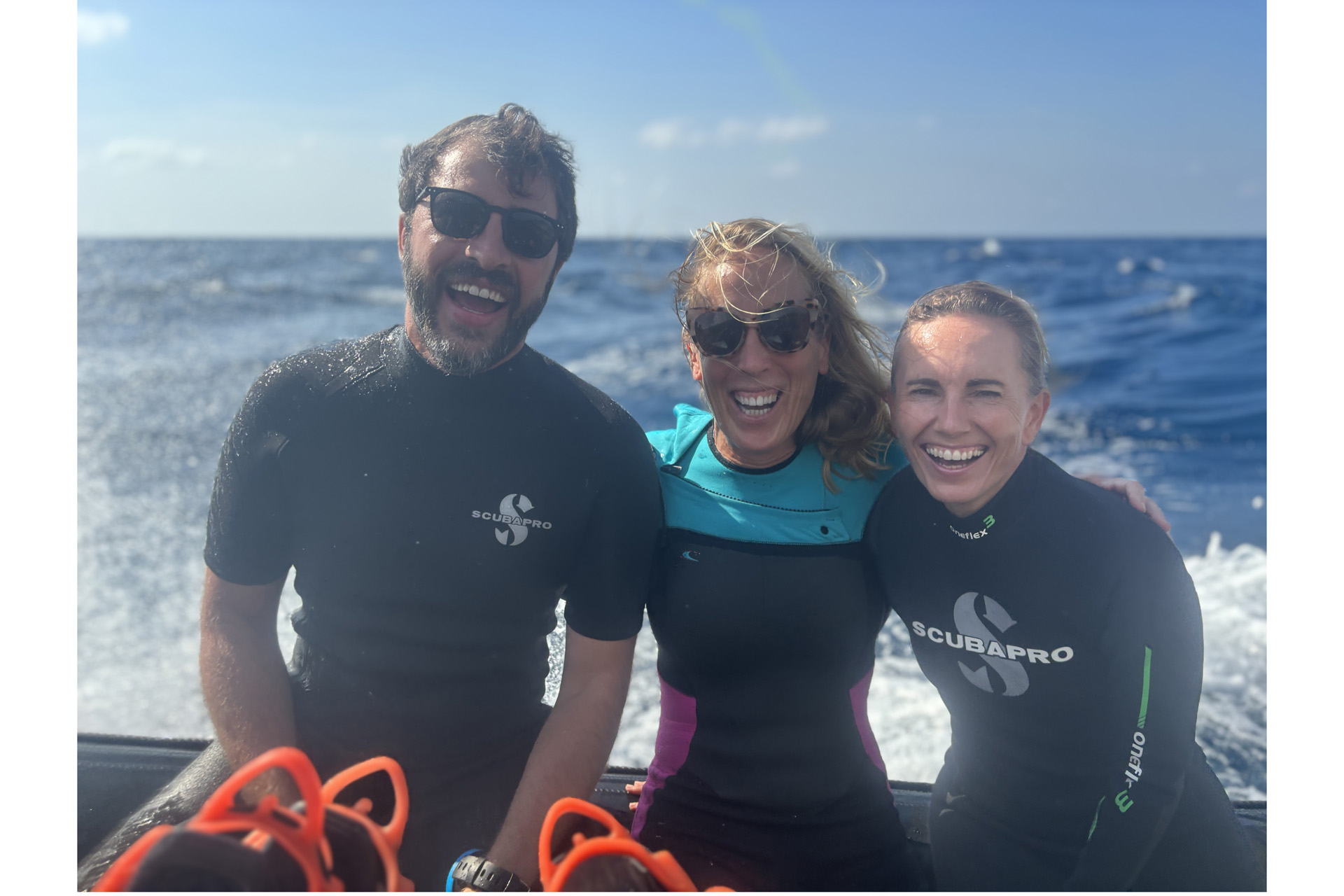
Abi with dive buddies Carlo and Gabriela
BOOK IT
Rates for Aqua Blu’s Spice Islands Itinerary start from $8,960 per person for seven nights (in double occupancy). aquaexpeditions.com
Aqua Blu has three routes in the Coral Triangle: Bali and Komodo National Park; Ambon and Spice Islands; and Raja Ampat. The Komodo National Park Itinerary will run from May–September 2024. In 2025, Aqua Blu will embark on a new itinerary to West Papua’s Asmat region for just four exclusive sailings.
The Langham Jakarta starts from $250 USD + tax per night (approx. £208) on a room-only basis. langhamhotels.com
Abi Butcher flew from LHR to Ambon, via Jakarta, with a carbon footprint of 4,188kg of CO2e (ecollectivecarbon.com)


